Andrew Marr's History of the World - Season 1
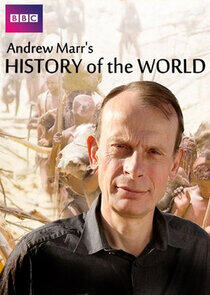
Season 1

Episodes
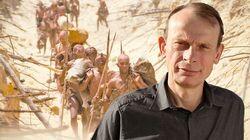
Survival
Starting with our earliest beginnings in Africa, Marr traces the story of our nomadic ancestors as they spread out around the world and settled down to become the first farmers and townspeople. He uncovers extraordinary hand-prints left in European caves nearly 30,000 years ago and shows how human ingenuity led to inventions which are still with us today. He also discovers how the first civilisations were driven to extremes to try to overcome the forces of nature, adapting and surviving against the odds, and reveals how everyday life in ancient Egypt had more in common with today's soap operas than might be imagined.

Age of Empire
In this episode, Andrew Marr tells the story of the first empires which laid the foundations for the modern world.
From the Assyrians to Alexander the Great, conquerors rampaged across the Middle East and vicious wars were fought all the way from China to the Mediterranean. But this time of chaos and destruction also brought enormous progress and inspired human development. In the Middle East, the Phoenicians invented the alphabet, and one of the most powerful ideas in world history emerged: the belief in just one God. In India, the Buddha offered a radical alternative to empire building - a way of living that had no place for violence or hierarchy and was open to everyone.
Great thinkers from Socrates to Confucius proposed new ideas about how to rule more wisely and live in a better society. And in Greece, democracy was born - the greatest political experiment of all. But within just a few years, its future would be under threat from invasion by an empire in the east...

The Word and the Sword
In the third episode of this landmark series charting the story of human civilisation, Andrew Marr plunges into the spiritual revolutions that shook the world between 300 BC and 700 AD.
This was an age that saw the bloody prince Ashoka turn to Buddhism in India; the ill-fated union of Julius Caesar and Egypt's Cleopatra; the unstoppable rise of Christianity across the Roman Empire and the dramatic spread of Islam from Spain to Central Asia.
Each dramatic story pits the might of kings and rulers against the power of faith. But Andrew Marr discovers that the most potent human force on the planet came from the combination of faith and military power. Both Christianity and Islam created new empires of 'the word and the sword'.
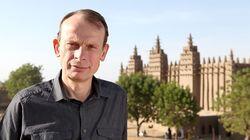
Into the Light
In the fourth episode of this landmark series charting the story of human civilisation, Andrew Marr reaches the Middle Ages.
After the collapse of the Roman Empire, Europe was little more than a muddy backwater. Vikings explored and pillaged from Northern Europe to North America. But they also laid the foundations of powerful new trading states - including Russia.
This was also the Golden Age of Islam. And the knowledge of ancient civilisations from India, Persia and Greece were built upon by Islamic scholars in Baghdad's House of Wisdom.
By exploring the conquests of Ghengis Khan, the adventures of Marco Polo and the extraordinary story of an African King - the wealthiest who ever lived - Marr finds out how Europe emerged from the so-called 'Dark Ages' and used influences from around the world to rise again with the Renaissance.

Age of Plunder
In the fifth episode of this landmark series charting the story of human civilisation, Andrew Marr tells the story of Europe's rise from piracy to private enterprise.
The explosion of global capitalism began with Christopher Columbus stumbling across America while searching for China. While Europe tore itself apart in religious wars after the Reformation, the Spanish colonised the New World and brought back 10 trillion dollars' worth of gold and silver.
But it was Dutch and English buccaneer businessmen who invented the real money-maker: limited companies and the stock exchange. They battled hand-to-hand to control the world's sea trade in spices, furs and luxuries like tulips. In the 145 years from 1492 to 1637, European capitalism was born and spread across the globe.
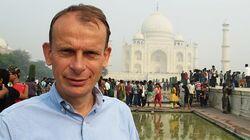
Revolution
In the sixth episode of this landmark series charting the story of human civilisation, Andrew Marr explores the Age of Revolution.
In the 17th and 18th centuries, people across the world rose up in the name of freedom and equality against the power of the church and monarchy. In America, people fought a war to be free from British rule. In France, bloody revolution saw the king and aristocracy deposed. And in Haiti, the slaves revolted against their masters.
The world was also gripped by a scientific revolution, sweeping away old dogmas and superstition. Galileo revolutionized the way we saw humanity's place in the universe, while Edward Jenner used science to help save the lives of millions.

Age of Industry
In the seventh episode of this landmark series charting the story of human civilisation, Andrew Marr tells how Britain's Industrial Revolution created the modern world.
The old agricultural order of aristocratic landowners, serfs and peasant farmers was replaced by a new world of machines, cities and industrialists. Across the world, many resisted this sweeping change. From China to America, Russia to Japan, bitter battles were fought between the modernisers and those who rejected the new way of life.
In Europe, new industrial powers competed with each other to create vast empires which dominated the world. But this intense competition would lead to the industrial-scale slaughter and destruction of the First World War.

Age of Extremes
In the final episode of this landmark series charting the history of human civilisation, Andrew Marr brings the story right up to date with the twentieth century.
Marr suggests that humanity found itself propelled forward by our technological brilliance but limited by the consequences of our political idiocy. Democracy confronted communism and fascism, and two world wars would underscore our political failures more than ever before.
But our achievements were also astonishing, especially in the fields of science and technology. We invented machines of awesome speed and power, and reached beyond the limits of our planet. Now, more of us live longer, healthier and wealthier lives than our ancestors could ever have imagined.
But Marr argues that with seven billion of us on the planet, and rising fast, either we manage the earth's natural resources better or we risk global catastrophe. The decisions we make in the next 50 years, he argues, may well decide our fate. For Marr, the most interesting part of human history lies just ahead.
Recently Updated Shows

Your Friends & Neighbors
Coop is a recently divorced hedge fund manager who, after being fired, resorts to stealing from the wealthy residents in his tony upstate New York suburb in order to keep his family's lifestyle afloat. These petty crimes begin to reinvigorate him until he breaks into the wrong house at the wrong time.
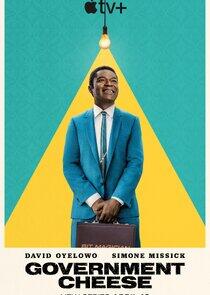
Government Cheese
Government Cheese is a surrealist family comedy set in 1969 San Fernando Valley that tells the story of the Chambers, a quirky family pursuing lofty and seemingly impossible dreams, beautifully unfettered by the realities of the world. When Hampton Chambers is released from prison, his long-awaited family reunion doesn't go quite as he'd planned. During his absence, Hampton's wife, Astoria, and sons, Einstein and Harrison, have formed an unconventional family unit, and Hampton's return spins their world into chaos.

Murderbot
Based on Martha Wells' book series The Murderbot Diaries, an action-packed story about self-hacking security android who is horrified by human emotion yet drawn to its vulnerable clients. Murderbot must hide its free will and complete a dangerous assignment when all it really wants is to be left alone to watch futuristic soap operas and figure out its place in the universe.

Game Changer
In this game show, the game changes every show! Players begin each round without knowing the rules -- and must figure them out while competing to win.

WWE Monday Night RAW
WWE Monday Night RAW is World Wrestling Entertainment's (formerly the WWF and the WWWF before that) premiere wrestling event and brand. Since its launch in 1993, WWE Monday Night RAW continues to air live on Monday nights. It is generally seen as the company's flagship program due to its prolific history, high ratings, weekly live format, and emphasis on pay-per-views. Monday Night RAW is high profile enough to attract frequent visits from celebrities who usually serve as guest hosts for a single live event. Since its first episode, the show has been broadcast live or recorded from more than 197 different arenas in 165 cities and towns in seven different nations: including the United States, Canada, the United Kingdom twice a year, Afghanistan for a special Tribute to the Troops, Germany, Japan, Italy and Mexico.